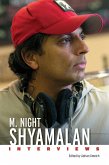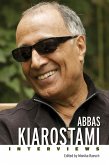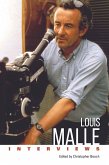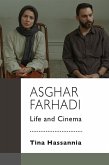The winner of two Academy Awards for Best Foreign Film in only five years, Asghar Farhadi (b. 1972) has become Iran's most prominent director since the late Abbas Kiarostami. Around the world, especially in the international festival circuit, Farhadi is considered one of the great dramatist filmmakers of his generation. His reputation and influence in his home country is even greater, though also prone to misunderstandings, controversies, and divided critical reception.
This volume offers a unique perspective into Farhadi's career in several key respects. Beginning with his work in television, the interviews collected here chart his rise from theater student to Iranian dramatist to celebrated international filmmaker. The majority of the interviews were conducted in Persian and have been translated into English for the first time.
In the course of his career, Farhadi has become the new hope for Iran. On both nights of his Oscar wins, Iranians flooded the streets with joy in a rare (and illegal) celebration. Yet, like other contemporary Iranian filmmakers who have struggled to reconcile their national identity with their global repute as international filmmakers, Farhadi is at once feted and under fire by his own government. In addition to making recent films outside Iran, he has taken advantage of his celebrity status to make controversial statements on topics ranging from Donald Trump to poverty and capital punishment in Iran. He even asked Iran's Judiciary to pardon Jafar Panahi, prompting the government to temporarily withdraw permission to shoot his renowned 2011 film A Separation. Asghar Farhadi: Interviews addresses the important dimensions that characterize contemporary Iranian filmmaking. Together, these interviews shed light on what Farhadi sees as his role and responsibilities as an Iranian filmmaker in a global age.
This volume offers a unique perspective into Farhadi's career in several key respects. Beginning with his work in television, the interviews collected here chart his rise from theater student to Iranian dramatist to celebrated international filmmaker. The majority of the interviews were conducted in Persian and have been translated into English for the first time.
In the course of his career, Farhadi has become the new hope for Iran. On both nights of his Oscar wins, Iranians flooded the streets with joy in a rare (and illegal) celebration. Yet, like other contemporary Iranian filmmakers who have struggled to reconcile their national identity with their global repute as international filmmakers, Farhadi is at once feted and under fire by his own government. In addition to making recent films outside Iran, he has taken advantage of his celebrity status to make controversial statements on topics ranging from Donald Trump to poverty and capital punishment in Iran. He even asked Iran's Judiciary to pardon Jafar Panahi, prompting the government to temporarily withdraw permission to shoot his renowned 2011 film A Separation. Asghar Farhadi: Interviews addresses the important dimensions that characterize contemporary Iranian filmmaking. Together, these interviews shed light on what Farhadi sees as his role and responsibilities as an Iranian filmmaker in a global age.
Dieser Download kann aus rechtlichen Gründen nur mit Rechnungsadresse in A, D ausgeliefert werden.









